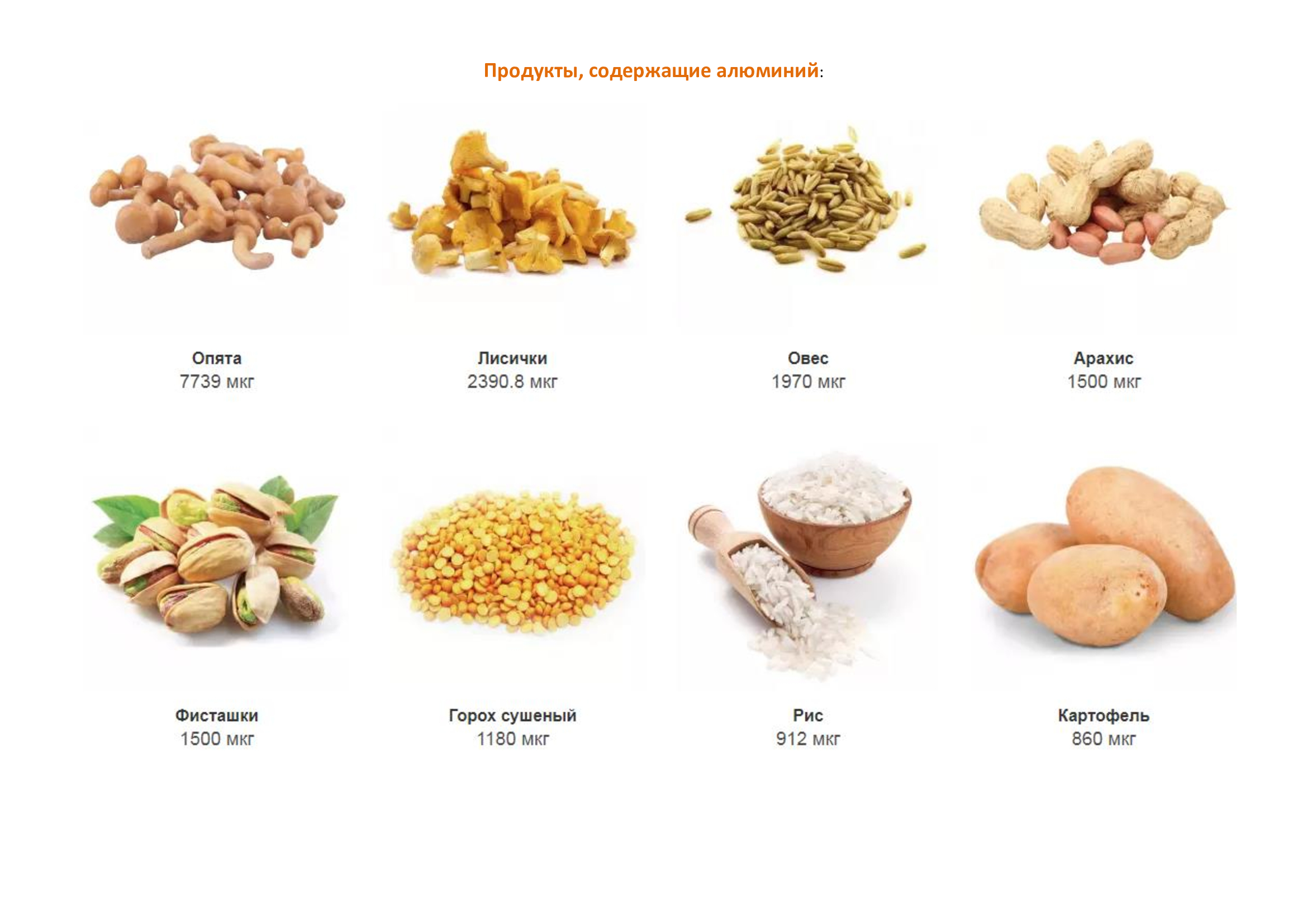The aluminum influence to the human body.
In fact, man is literally saturated with aluminum. The element is contained in various species throughout almost the entire body system, and is also able to accumulate in the brain, kidneys, lungs, musculoskeletal system, liver and nerve structures. But the substance performs special functions in the structure or regeneration of epithelial tissues and dense connective tissue. The biological role of aluminum to the human body is important, since it has an active effect on the digestive tract: it contributes to the processes of the glands of the endocrine system; regulates the activity of digestive enzymes; takes part in the formation of compounds of proteins and phosphates; promotes cell repair; during digestion of nutrients increases the effectiveness of digestive juice. Aluminum can bring a positive physiological effect on a living body to those people who suffer from peptic ulcers, gastritis, osteoporosis or who recover from fractures.
Contenting in products and other sources.
The content of aluminum forms in food or auxiliary sources is diverse. The most common forms are water and various edible products. There are a lot of poisonous aluminum salts in water that accumulate in liquids. The element enters clean water even through cleaning devices, since aluminum filtration uses aluminum alum. Plant products are richer in metal than animal products. The largest amount of element falls on: potatoes; avocado; bakery products; eggplant; peas; oats; beans; semolina; pasta; nutmeg; Strawberries carrot; corn; apples kiwi; peaches.
The daily norm of aluminum as a microelement has not been fully established by scientists, according to some reports, the amount of aluminum in the body should be about 2 g, others say that the mass of the metal should not exceed 50 mg. It is worth noting that taking food and water, every day we get from 30 to 100 mg of the substance, depending on the place and lifestyle, as well as the diet, so it is not advisable to use any other drugs. Aluminum is taken by man every day, and the body as an established mechanical machine constantly removes excess metal, absorbing about 4%.
In order to maintain an optimal balance of aluminum, it is necessary to reduce its supply by rejecting products that contain dyes and preservatives: baked goods, sweets, sausages, snacks and more. To identify the presence of aluminum on purchased products, you will be helped by the marking, which aluminum designates under the code E 520-523. The content of aluminum particles in such products, although small, is still harmful.
In addition to food, there is a product that also contains in part impurities partially or completely composed of aluminum. Dry or aerosol deodorants today put our body at a certain risk. Aluminum salts as active components masking unpleasant odors clog sweat glands, resulting in the return of toxins to the bloodstream. Therefore, scientists propose the use of more ecological materials based on alum or volcanic salt. Beloved by all women decorative cosmetics in the form of foundation, lipstick or mascara requires a thoughtful approach and the right choice. A large accumulation of aluminum in the body can be avoided by using magnesium, zinc, calcium or silver ions. You can control the presence of a chemical element in the body by passing various tests.
The role of aluminum in medicine.
In medicine aluminum also plays a huge biological role. Many preparations based on an aluminum element have enveloping and analgesic effects, antacid and adsorbing effects. The use of aluminum alum in medicine has been known since ancient times. Then aluminum salts were used to treat skin diseases and healing. Currently, such substances are also actively used in dermatology, advanced components now still have bactericidal properties, while very gently affecting the skin. There are also aluminum-based medications for oral use. The main area of treatment with such drugs is gastroenterology.
Popular aluminum medicines treat heartburn, gastritis, and various stomach ulcers. Each year, these medicines are improved, reducing side effects and increasing productivity.

